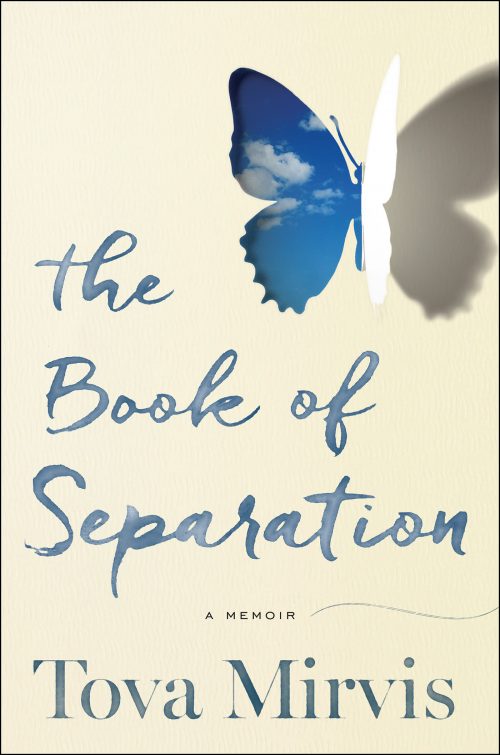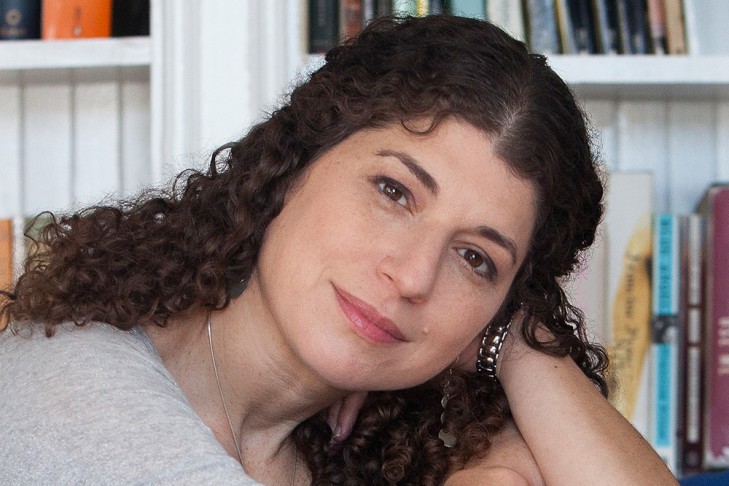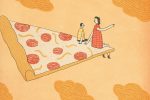Tova Mirvis had always thought of herself as a fiction writer. But after a painful divorce and much soul-searching, she turned to memoir to understand her changing place as a mother, a Jew and a woman. “The Book of Separation” is a clear-eyed, unforgettable account of her first year post-divorce, during which she conquers fears and creates new spaces in her life for an evolving faith and new love.
What was the genesis of “The Book of Separation”?
I published an essay in The New York Times about my divorce; it was the first piece of writing I had done about my story. Although I needed to tell it, it was also a story that many people wanted to hear about leave-taking, the cost of change and also the rewards of it.
What was it like for you to go from a writer of fiction to a memoirist?
I never thought I would write memoir. With fiction, I love creating an alternate world and having the chance to explore what it feels like to be inside of someone else’s head; the question of what is going on in someone’s inner life motivates me as a fiction writer. When I was ready to turn that eye on myself, I had some of the same questions I explored in my fiction—I wasn’t just interested in what happened, but what does it all mean? Why do we make the choices we do? Where are those larger stories inside our own stories? Where are those universal questions about belonging, individuality and tradition that I had been writing about in fiction and superimposing on my characters’ lives?
How did you prepare to write the memoir?
Before I started to write this memoir, I decided I would read memoir—only memoir—for a year. I wanted to think about voice and structure and pacing, craft issues I could learn from reading. I read all kinds of memoir, especially ones describing personal transformations. I learned a lot from these books about the craft of writing, but they helped me in another way too—they helped ease the loneliness of leave-taking. They did what the best books do—they reminded me that I, that none of us, are alone in the paths we set out on.

How did structuring the book around the Jewish calendar year help you tell your story?
There is some irony in writing a book about leaving that is structured around staying. I was interested in the idea of a year, and Rosh Hashanah, with its themes of renewal and looking forward—as well as looking backward—was the right place to start the book. It was also the beginning of our divorce holiday schedule, where my children would spend Rosh Hashanah with my ex-husband’s family. The timing brought to a head the question that without a sense of rules or family obligations, how would I mark this day?
In the book, you do a remarkable job of chronicling your growing dissatisfaction with an Orthodox Jewish lifestyle. What did you do on that first Rosh Hashanah by yourself?
It was the first holiday where I initiated a break from everything. I didn’t want to recreate a traditional holiday experience; I went to Kripalu in the Berkshires where I didn’t have to focus on the external aspects of the holiday. I did take some of the meaning and values of Rosh Hashanah and internalize them in a way I couldn’t do in shul, where I felt cut off. I wanted an environment that felt true to me in order to look inward.
How have you celebrated Rosh Hashanah since then?
The most meaningful celebrations of Rosh Hashanah have been the ones that I spent in national parks. For example, the book ends the next year on Rosh Hashanah in Acadia National Park in Bar Harbor, Maine. A few years later, I went to Zion National Park in Utah. I’ve also gone on a three-day hiking trip in Canyon Lands in Utah. This is the holiday celebrating the creation of the world, and I want to be surrounded by the natural world, to be in what is so majestic and mysterious.
You recently published a New York Times Modern Love column that partly reflects negotiating the differences between your Judaism and your ex-husband’s. How do you explain the differences to your children?
Related
At one point, you say that letting go doesn’t mean you have to leave everything behind. How do you define your Judaism now?
The feeling of being an outsider sometimes can drive people farther away than they would have gone. We all take leave of things at different points in our lives. Clean breaks are maybe easier. It’s harder to navigate that I still want part of who I was. This book is not about leaving Judaism—it depicts leaving one form or notion of Judaism and opening myself up to discovering who I can be in the Jewish world.
Tova Mirvis will be reading from “The Book of Separation” at Newtonville Books on Tuesday, Sept. 26, and Brookline Booksmith on Monday, Oct. 2.
This post has been contributed by a third party. The opinions, facts and any media content are presented solely by the author, and JewishBoston assumes no responsibility for them. Want to add your voice to the conversation? Publish your own post here. MORE




